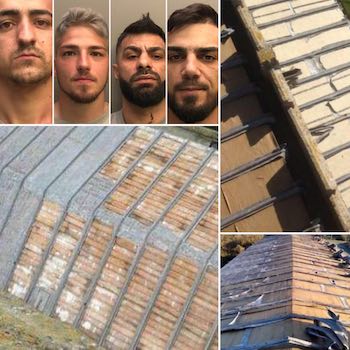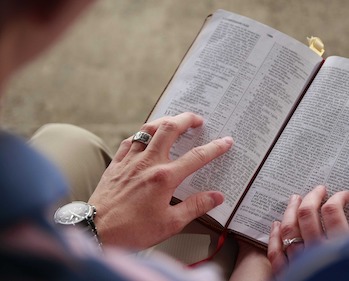A gang of four thieves who stole lead from more than 20 remote country churches across England have been jailed for a total of 22 years.
Paul Buica, Constantin Motescu, Luarentiu Sucea and Mihai Birtu wreaked havoc across the country by stripping the lead off local church buildings between 2018 and 2020.
The affected buildings faced a combined repair bill of more than £2m, Lincoln Crown Court was told.
The four defendants stripped tonnes of lead from a mixture of Grade I and Grade II-listed churches between May 2018 and March 2020 – costing 36 churches a combined total of almost £2.1m.
The Romanian gang targeted churches spanning most of the UK – from Somerset to North Yorkshire – causing much damage.
A vicar said the thieves had “desecrated” his church for “a few pounds worth of lead”.
Damage to one of the churches – the 14th Century St Bartholomew’s at Covenham St Bartholomew, was estimated at £250,000. The stripping of lead would often lead to serious internal building damage as a result of water ingress.
The men were arrested in March 2020 following a special police investigation into the thefts, which were becoming increasingly frequent.
Lincolnshire Police’s Detective Chief Inspector, Jon Shield, who led the investigation, said: “Working in partnership with other forces and agencies including the Diocese of Lincoln and Historic England, our dedicated Op History team have worked tirelessly to ensure justice is served.
“Some of the church congregations are still struggling to find the funds to repair the damage and restore their significant historical buildings which means so much to them as well as the local communities they serve. The vast majority of these churches will have had insurance in place, but the insurance only covers a small part of the costs so congregations have been left to foot the remainder of the bill. The impact of these offences goes well beyond the significant financial cost. Communities have felt a great sense of loss at the damage caused to their heritage, and increased vulnerability due to the rural nature of many of the premises. Some of the buildings are thousands of years old so these men have potentially destroyed hundreds of years of our heritage.”
It is still unclear what these defendants spent the money they gained from these thefts on and investigations into this is still ongoing.
Michael Cranmer-Brown, prosecuting, said the defendants “played a hugely significant part in an organised crime group whose target was lead sheeting which can be found on the roofs of churches around the country”.
The gang travelled the length and breadth of the country to churches set in small rural locations, arriving there in the early hours of the morning, climbing on to the roof and removing large amounts of lead under cover of darkness.
Cranmer-Brown added: “The churches attacked were located in Lincolnshire, Humberside, Derbyshire, Cambridgeshire, Wiltshire and Avon & Somerset.
Lincolnshire as a county was particularly hard hit.
The attacked buildings were of huge religious and historic significance to the local community and to the country generally.
Duncan Wilson, chief executive of Historic England, welcomed the prosecution:
“The outcome of this case highlights the benefits of collaborative working between the Police, Crown Prosecution Service, church communities and Historic England and is an approach we shall continue to use when dealing with metal theft. The theft of metal from historic church buildings is a serious and organised crime. Removing large areas of lead or copper from roofs has not just a serious financial effect on church communities but a huge effect on their morale.”
Mark Harrison, head of heritage crime strategy for Historic England, highlighted the high toll of the damage caused to historic church buildings who fall victim to such thefts.
“The metal stolen will have historic and cultural value and its removal leads to irreparable damage to protected heritage buildings,” he said, “which is why tackling this problem is so important.”
The prosecutor added that there are other defendants still being sought by the police.
(Picture Courtesy: Lincolnshire Police)













